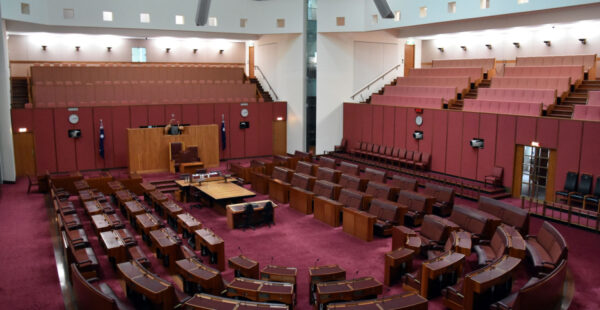Jones reduces APRA levy cost to small funds

In a significant concession to small superannuation funds, the Government has reduced the cost of the so-called APRA levy to smaller superannuation funds.
The change, announced as part of a Government tidy-up of legislative and regulatory issues before the Parliamentary winter recess, will see the restricted levy cap increased from $800,000 to $900,000 – something which will mean larger funds carry more cost.
The change was highlighted by First Super which described it as a win for small funds and their members and a result of lobby by both First Super and the Association of Superannuation Funds of Australia (ASFA).
First Super noted that in its consultation paper around the proposed levy for FY 2024/25, Treasury had intended maintaining the existing formula which saw smaller funds paying more.
The reduction means that restricted levies will be lower than last year and far lower than was sought this year. Restricted levies cover the costs of APRA supervising the super industry and are currently calculated as a percentage of a fund’s assets under management.
The Minister has also increased the restricted levy cap from $800,000 to $900,000. Increasing this cap means that larger funds will pay a greater amount, while many smaller funds will pay less.
Meanwhile, unrestricted levies (which cover things like APRA’s staffing and operating costs) were not increased by the amount proposed, but are still higher than 2023/24.
First Super cited the example of a smaller super fund with assets under management of $1billion now paying $77,600 in restricted levies in 2024/25, instead of $84,000 in 2023/24, or the initially forecast $113,000.
The per centage for restricted levies is the same for all funds. However, a cap on fees benefits large and complex funds, as it passes their high cost of APRA supervision onto the smaller funds. Increasing the cap to $900,000 is a positive first step toward a fairer distribution of costs, that will see larger super funds pay greater levies for their supervision.
First Super CEO Bill Watson welcomed the decision saying members would no longer face and unfair regulatory cost.
“However, we will continue to advocate for further change to the way restricted levies are calculated. The current model is at odds with the increased supervisory efforts for large funds relative to smaller, less complex funds.
“APRA itself has identified that it is focused largely on system-wide risks stemming from the increased size and complexity of the superannuation sector and are being amplified by funds hiring in-house investment teams and other functions.
“Further consideration should be given to APRA’s linear modelling of the costs of supervision in which $1 billion at a small fund is seen as the same cost as the one-hundred billionth at a large fund.”











So someone in India who isn't licensed provided personalised financial advice and ASIC's response is to tell them to be…
Seeking Regulatory relief from Regulation. Industry Super Funds want to control $1.6 Trillion $$$ and ever growing with almost zero…
If Kalkine has officially been released and operates under a legitimate license to provide general advice, it raises an important…
Not sure what they're seeking regulatory relief from. In my view is they get tickled with a warm lettuce leaf…
Will they ever be named & shamed, fined and banned for life ??? Unlikely hey ASIC & APRA, especially for…